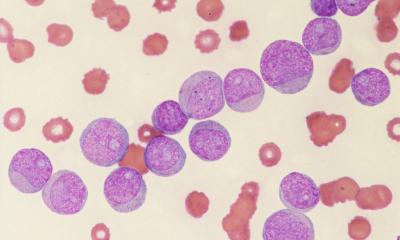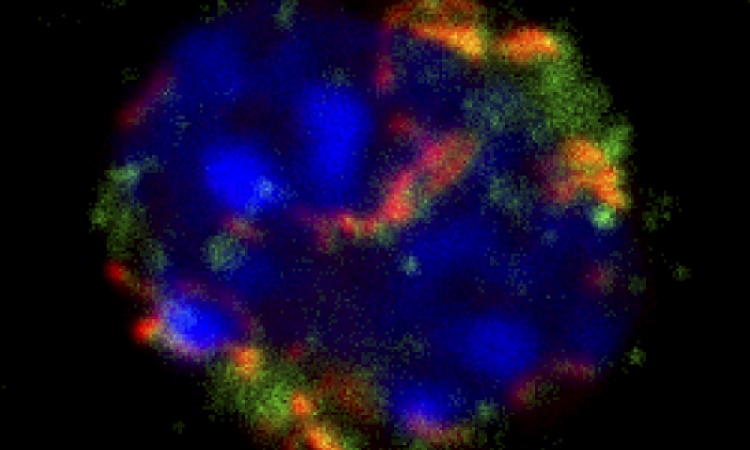Global database
Scientists create leukaemia online tool to aid search for cure
Finding a cure for a rare type of blood cancer could be accelerated by a new virtual platform that allows researchers easy access to data from patient samples generated by laboratories around the world. LEUKomics, which has been launched by scientists at the University of Glasgow and the University of Melbourne, is a comprehensive database describing over 100 chronic myeloid leukaemia (CML) samples.

It is completely free for researchers to use and share. CML symptoms often include severe fatigue and weight loss, and although it develops slowly, it will eventually progress and prove fatal if untreated. Unlike many other cancers, a single genetic mutation underlies the biology of CML. The fault occurs early on in the development of a type of white blood cell called myeloid cells. Scientists hope LEUKomics will increase understanding of CML, and lead to new targeted drugs and ultimately a cure. The website has been built as part of the stem cell database Stemformatics, with funding from the charities Bloodwise and the Scottish Cancer Foundation. Drugs called tyrosine kinase inhibitors, or TKIs, were introduced in the early 2000s, and are designed to target the genetic mutation that drives CML. Most patients can take a daily pill and live a normal life, but some people experience intolerable side effects from TKIs or develop resistance.
One of the main aims of current research is to design treatments that can target the underlying leukaemic stem cells that can evade TKIs, offering hope of a permanent cure. To do this, researchers need to know more about these elusive leukaemic stem cells, and they believe that the answers lie in the analysis of large scale biological information. Developed by the teams of Professor Christine Wells at The University of Melbourne and Professor Tessa Holyoake at The University of Glasgow, the LEUKomics database curates high quality information on the gene activity of different CML stem cell samples.
Due to the expense of generating this data and difficulties obtaining these rare CML cells from patient material, single datasets tend to have small sample numbers, which limits their potential to show small changes in the leukaemic samples. With the increased samples size that comes from combining multiple data sets, researchers have the power to detect more subtle changes that may be crucial to the biology of the leukaemic stem cells. Professor Jeff Evans, Director of the Institute of Cancer Sciences at the University of Glasgow said: "LEUKomics is a very valuable resource and could help us to reveal new underlying mechanisms that drive CML. It has the potential to transform CML research on a global level, as the findings can be downloaded and shared with other researchers across the world. We also hope it inspires new research ideas, and ultimately fuels a global search into finding cures for CML."
The data allows researchers to uncover how active different genes are in leukaemic stem cells and how these interact with each other to affect the blood cancer's behaviour. The online portal also contains samples of healthy blood stem cells, allowing researchers to directly compare the gene activity with leukaemic stem cells. Dr Alasdair Rankin, Director of Research at Bloodwise, said: "Thanks to research, most patients with CML will now live a normal life by taking a single pill. But treatment is life-long and not everyone can tolerate the side effects from their treatment, or may not respond and see their CML return. There remains a need to develop a permanent cure for all people with this blood cancer. LEUKomics is a highly innovative way to speed up this search for a cure, and should be a valuable asset for the global blood cancer research community. We look forward to seeing its impact in the months to come."
The LEUKomics database can be accessed at: www.stemformatics.org/leukomics
Source: Bloodwise
02.05.2017





